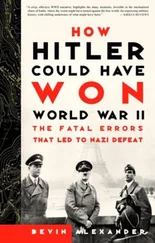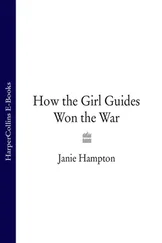Britain was unable to establish firm evidence of this menacing prospect but the Foreign Office was suspicious. In a note to Curzon, ten days after the news of the Rapallo treaty burst on the world, an astute Whitehall official warned, ‘I am convinced that … there is a perfect understanding between the two parties that the Germans will help to build the Russian army and especially the Russian navy: such a co-operation revolutionizes the outlook in Europe.’ 15 His warning was not quite on the mark. Although the Soviets gained important military insights, the main effect of the treaty was to provide the Germans with the opportunity to evade the terms of the Versailles treaty by rebuilding their armed forces far away from the prying eyes of western Europe.
Within weeks of Rapallo, Moscow agreed that the Reichswehr could establish a flying school at Lipetsk (460 kilometres to the south of the capital) and a chemical weapons plant at Volsk (300 kilometres to the south of Samara). Under the guise of building ‘tractors’, weapons manufacturers such as Krupp and Junkers set up factories near Moscow and Rostov-on-Don to build tanks. At a training ground near Kazan, German commanders tested battlefield manoeuvres that would be adapted by panzer commanders to slice through the French defensive lines in 1940 and – in the grimmest of ironies – to devastate the Soviet forces that would be ranged against them in the early summer of the following year. Heinz Guderian, who would become famed as one of Hitler’s most brilliant panzer commanders on both fronts, later paid oblique tribute to this most cynical of compacts, writing, ‘Since 1926, a testing station had been in existence abroad where new German tanks could be tried out …’ 16 In return for Moscow’s largesse, an exchange programme allowed Soviet officers to be trained at German military academies, where both sides learned a great deal about the other’s organization and methods.
This military entente was underpinned by a trading agreement between the two nations. In return for extensive loans, the Bolshevik government exported huge quantities of grain to the Reich. In 1923 alone – in the immediate aftermath of a famine in which 5 million Soviet citizens in western Russia died from starvation and related diseases – this amounted to more than 3 million tons. In return, Moscow used the credits extended by the German banks to buy industrial machinery and supplies to reconstruct its own ‘military-industrial’ complex, which had been ravaged by war and revolution.
Disconcerted by the rapport between the two continental giants, the British watched from the sidelines, baffled and anxious. ‘We cannot afford … to have Germany or an eventual Russo-German combination supreme on the continent,’ 17 Austen Chamberlain, the British Foreign Secretary, noted as his officials sought to shape a countervailing policy that was framed by a deep aversion to communism. A widespread prejudice in the Foreign Office against the ‘incessant, though shapeless menace’ 18 of the Soviet Union led London to conclude that Moscow posed a greater threat to European security than Berlin. Notwithstanding Versailles, Britain set about prising the Weimar leaders away from the Russian Bear. Supported by France, Belgium and Italy, London devised a series of interlocking agreements to reassure the Germans that the Reich was no longer regarded by the other European democracies as an outcast.
The 1925 Treaty of Locarno was the fruit of this diplomatic offensive. Under the terms of the treaty, the Germans and the French agreed their common border and renounced the use of force against one another; the French, together with Belgium, withdrew from Germany’s industrial heartlands in the Ruhr (which they had occupied in 1923 following the Reich’s failure to pay its annual reparations bill); the demilitarization of the Rhineland imposed at Versailles was confirmed; and Germany was formally accepted back into the family of western Europe with an invitation to join the League of Nations. Locarno was hailed for delivering that ‘peace for our time’ which had proved so elusive at Genoa three years earlier, but it was a fragile chalice within which to contain the grudges and fears that Europe still incubated.
The Russians, who had put intense pressure on Berlin to reject the Locarno terms, were aggrieved by the Reich’s decision to succumb to London’s blandishments. Anxious to reassure a paranoid Moscow that they had no intention of joining an anti-Soviet cabal, the Germans moved swiftly to reaffirm the economic and military ties established by the Rapallo treaty. In April 1926, four months after the Locarno treaty came into force, the Soviet foreign minister, Chicherin, arrived in the German capital, where the two sides pledged themselves, in the form of the Berlin treaty, to renew their neutrality pact for a further five years. As Austen Chamberlain complained, the Germans had opted ‘to run with the hare and hunt with the hounds’. 19
Though frustrated by the Weimar leadership, British ministers were far more acerbic about the Bolshevik regime in Moscow, which they abhorred and feared, seeing in the Kremlin leadership the personification of the urge to subvert freedom and democracy in the West and to replace capitalism with communism and its accompanying ‘dictatorship of the proletariat’. This was a justifiable attitude but it was also blinkered. In the febrile years following the rise of Hitler, it had a profoundly adverse effect on diplomatic relations between London and Moscow, which ill-served British interests. Contemptuous of the Kremlin’s pretensions to ‘great power’ status, Austen Chamberlain not only rebuffed Soviet efforts to secure Western loans, but, adopting the patronizing tone prevalent in Whitehall, noted ‘they really are suffering from swollen heads. They are of less consequence to us than they suppose and they grossly flatter themselves when they suppose that British policy is dictated by thought of them.’ 20
Like their European counterparts, British ministers were irked by Moscow’s determined if clumsy efforts to undermine Western democratic institutions while demanding equality of status with their ideological adversaries. In Britain’s case this was exemplified by Moscow’s symbolic support for the 1926 General Strike by means of a modest donation to the Trades Union Congress. Citing this breach of diplomatic propriety by Soviet diplomats based in London, Lloyd George’s successor as prime minister, Stanley Baldwin, severed diplomatic relations with Moscow. fn5 Following Locarno – where, according to the Foreign Secretary, the government had been ‘battling with Soviet Russia for the soul of Germany’ – Britain’s overriding objective was unambiguous: in Austen Chamberlain’s words, it was ‘to attach Germany solidly to the Western powers’ and to prevent the Reich ‘succumbing to the temptation’ to slip back into the Soviet embrace. 21
Though formal relations with the Soviet Union were restored by Ramsay MacDonald’s incoming Labour government in 1929, the icy stand-off between London and Moscow aggravated Stalin’s conviction that Britain was intent on mobilizing the European democracies to destroy Bolshevism. Mutual distrust and incomprehension so disfigured Anglo-Soviet relations as to make a constructive dialogue between London and Moscow all but impossible for the next decade.
A more immediate – and far more dangerous – challenge to Europe’s fragile stability came not from Bolshevism but in the form of the Wall Street Crash in 1929. For the previous five years, following a series of complex negotiations, the US banks had been keeping the German Reichsbank afloat with massive loans that had helped offset the cost of reparations imposed on the Weimar Republic at Versailles. As a result, the faltering German economy had started to recover and the great manufacturing industries to thrive once more. The financial firestorm of hyperinflation that ruined lives and livelihoods in the mid-1920s had been doused. German citizens began to enjoy relative prosperity and stability. But with the sudden meltdown of the global financial system, those US loans were withdrawn, the life-support system taken away. The German economy went into free fall, industrial output collapsed and, within three years, 6 million or more Germans – both white-collar workers and those who laboured on the factory floor – were out of work. Stricken by the Great Depression, families lost their savings and went hungry, malnutrition was rife and children were ravaged by disease. Feeding on this human misery and resentment, a foetid virus – one that had been incubating in the post-war turbulence of a defeated nation and for which there was no apparent antidote – rampaged across the entire nation, rapidly infecting a huge proportion of the population.
Читать дальше
![Джонатан Димблби Barbarossa: How Hitler Lost the War [calibre] обложка книги](/books/385421/dzhonatan-dimblbi-barbarossa-how-hitler-lost-the-w-cover.webp)



![Traudl Junge - Hitler's Last Secretary - A Firsthand Account of Life with Hitler [aka Until the Final Hour]](/books/416681/traudl-junge-hitler-s-last-secretary-a-firsthand-thumb.webp)







